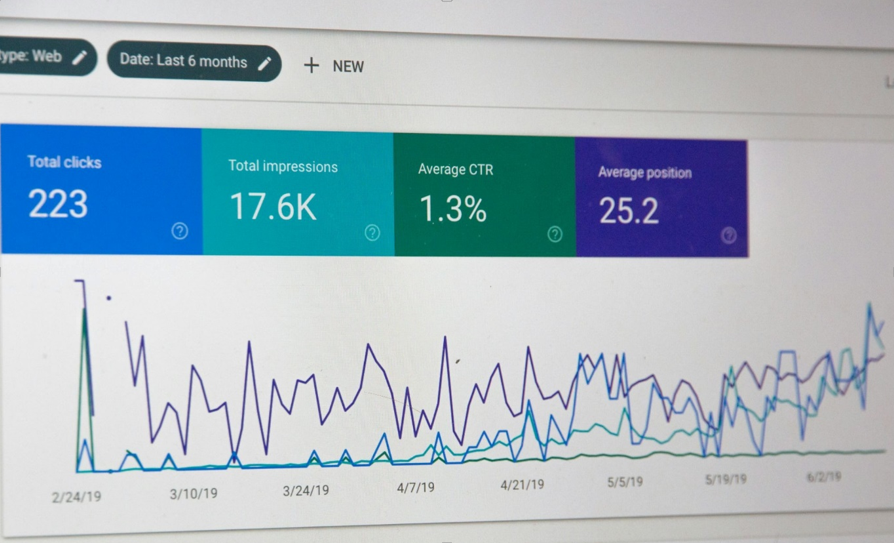Average Cost of SEO for Small Businesses in 2025: What to Expect in Australia

Search visibility has become the new currency of business growth. In 2025, competition among Australian small businesses is fiercer than ever. Companies that once relied solely on word of mouth now recognise the value of ranking high on Google. The reason is simple: potential customers rarely scroll beyond the first few search results.
Investing in SEO is no longer a question of “if” but “how much.” The challenge for most small business owners lies in determining what a fair price looks like. Some agencies charge a few hundred dollars a month, while others quote several thousand. The difference usually comes down to strategy, scope, and experience.
According to recent analyses of the average cost of SEO for small businesses, pricing in 2025 reflects not only increased competition but also smarter, data-driven service models. Agencies are moving away from outdated “package deals” and towards tailored strategies that match each client’s goals and market size.
For small businesses, this shift means greater clarity on value. Instead of paying for vague deliverables, business owners now expect transparent pricing that connects directly to measurable results such as traffic, leads, and sales.
Factors Influencing SEO Pricing for Small Businesses
No two businesses pay exactly the same amount for SEO. The cost depends on a range of variables that define how much effort, expertise, and time an agency must invest.
Below are the most common factors that shape pricing in Australia:
- Business size and goals: A single-location café will require far less work than a plumbing company servicing multiple suburbs. The broader the target area, the higher the investment.
- Industry competitiveness: Sectors like law, finance, and healthcare face intense competition, which drives up the cost of keyword bidding and content development.
- Website health: A site with strong technical foundations can be optimised faster than one with crawl errors, duplicate content, or slow loading times.
- Scope of work: Some businesses need a one-off technical audit, while others require full-scale monthly campaigns covering content, link building, and on-page optimisation.
- Experience and credibility of the agency: Established agencies tend to charge more, but they also bring proven systems, custom tools, and trackable outcomes.
To illustrate, consider two examples.
A small florist in Melbourne might spend around $800 monthly to target local searches like “flower delivery near me.” Meanwhile, a construction company in Sydney bidding for “commercial builders” could be looking at $3,000 or more per month due to higher keyword competition and broader service areas.
Typical Price Ranges for SEO in professional SEO is wide. Many small businesses start with a modest budget, then scale up once they begin to see measurable results. The table below shows average monthly SEO pricing ranges across Australia in 2025.
| SEO Service Type | Average Monthly Cost (AUD) | Best Suited For |
| Basic Local SEO | $500 – $1,200 | Start-ups or single-location businesses targeting a local audience |
| Mid-Tier SEO Packages | $1,200 – $3,000 | Small to mid-sized companies seeking consistent growth and keyword expansion |
| Advanced SEO Plans | $3,000 – $7,000+ | Businesses operating across multiple cities or highly competitive industries |
These figures represent ongoing campaigns rather than one-off projects. They usually include keyword tracking, content updates, backlink building, and technical monitoring.
Compared to previous years, the overall cost has slightly increased. AI-driven search results, algorithm updates, and automation tools have raised the standards for optimisation. While some agencies have managed to streamline certain tasks through automation, clients still pay for strategy, creative direction, and data interpretation — the elements that machines can’t replace.
It’s worth noting that regional price variations exist. Agencies in Sydney and Melbourne generally charge more than those in smaller cities or rural areas. The reason is simple: cost of living and competitive intensity push rates higher in major markets.
What’s Included in an SEO Package (and What’s Not)
Transparency has become a major talking point among small business owners investing in SEO. Knowing what’s included in your plan prevents miscommunication and helps you assess value properly.
Most reputable agencies include the following in a typical SEO package:
- Keyword research and mapping – Identifying search terms that drive relevant traffic.
- On-page optimisation – Improving meta tags, headings, images, and internal links.
- Technical SEO checks – Fixing crawl errors, broken links, and speed issues.
- Content creation or optimisation – Publishing articles, landing pages, or guides tailored to your audience.
- Link building – Earning backlinks from reputable websites to strengthen domain authority.
- Reporting and analysis – Monthly performance summaries and recommendations for improvement.
What’s often excluded or billed separately includes web development fixes, social media content, local citation clean-ups, or paid search management. Some agencies also charge extra for content writing beyond a certain word count or for custom outreach campaigns.
It’s always worth requesting a breakdown before signing a contract. That way, you can compare proposals accurately and identify which provider offers the most comprehensive service at a fair price.
Hidden Costs and Misleading “Cheap SEO” Packages
Every small business owner has seen them — offers claiming to deliver “page-one results” for under $300 a month. The reality is that these deals usually cause more harm than good.
Cheap SEO providers often rely on outdated link-building tactics, low-quality content, and automated submissions. The initial results may look promising, but they rarely last. Once Google identifies manipulative or spammy activity, rankings can drop overnight, leaving business owners with cleanup costs that exceed what they initially saved.
Below are some of the common pitfalls to watch out for:
- Fake backlinks: Purchased in bulk from irrelevant websites.
- Copied or AI-generated content: Lacks originality and often violates Google’s content guidelines.
- No reporting or transparency: Clients are kept in the dark about what’s actually being done.
- Short-term contracts: Agencies vanish once penalties occur or results decline.
The problem with cheap SEO isn’t just the low price — it’s the long-term damage to trust, visibility, and online reputation. Once a website is penalised, recovery can take months.
Professional SEO should always feel collaborative. You should know what your agency is doing, how success is measured, and where your money goes. Paying slightly more upfront for ethical, data-driven SEO can save a business thousands over time.
See also: How Denver Web Design Firms Integrate Technology And Art
Estimating ROI: How to Evaluate Value Beyond Price

Small business owners often ask a simple question: “Is SEO worth the investment?” The answer depends on how success is measured.
While it’s easy to focus on cost alone, a smarter approach looks at return on investment. For example, a $2,000 monthly SEO plan that generates ten qualified leads could outperform a $1,000 plan with minimal conversions. Value isn’t in the fee but in the outcome.
Tracking ROI involves more than watching keyword positions. The real focus should be on measurable business growth. Some common indicators include:
- Organic traffic increase – The rise in visitors coming through unpaid search.
- Conversion rate improvements – Higher percentage of visitors taking action, such as submitting enquiries or making purchases.
- Lead quality – The number of genuine customer enquiries compared to unqualified traffic.
- Lifetime customer value – Revenue generated from clients acquired through organic search over time.
Using tools like Google Analytics and Search Console allows businesses to see how traffic behaves before and after optimisation. Combining that data with CRM insights reveals how SEO contributes directly to sales performance.
Ultimately, SEO should be viewed as a long-term investment. It compounds over time, meaning the results you see in six months often come from consistent effort and data refinement rather than quick tricks.
How to Choose the Right SEO Agency in Australia
Selecting the right SEO partner can make the difference between steady growth and wasted spending. Many small business owners rush into contracts without comparing service quality, experience, or accountability. Taking a careful approach helps avoid disappointment later.
Here’s a practical checklist to follow when assessing agencies:
- Transparent communication: Look for teams that explain their strategies in plain language rather than hiding behind jargon.
- Real case studies: Reputable agencies provide evidence of success, often through client testimonials or published performance data.
- Tailored strategies: Avoid cookie-cutter packages that promise the same results for every business.
- Local experience: An agency familiar with your region understands local search behaviour and competition patterns.
- Contract flexibility: Short-term or month-to-month agreements are better than long lock-ins.
- Reporting consistency: Clear monthly updates showing keyword movement, traffic changes, and ROI metrics.
It’s also worth researching who’s actually doing the work. Some agencies outsource overseas, which can affect quality control and communication. Ideally, your project should be handled by a local team that understands Australian search trends and user intent.
Regional SEO Price Trends Across Australia
While Australia’s SEO pricing follows similar patterns nationwide, regional variations are common. Larger cities usually have higher costs due to competition, population size, and increased market demand.
| City | Average Monthly Cost Range | Overview |
| Sydney | $1,500 – $6,000 | Competitive industries and strong demand push rates higher, particularly for trades and professional services. |
| Melbourne | $1,200 – $5,000 | A creative hub with many boutique agencies offering tailored campaigns for small and mid-sized businesses. |
| Brisbane | $900 – $3,500 | Balanced market with fair pricing and steady demand for local SEO. |
| Perth | $800 – $3,000 | Lower overheads make Perth one of the more affordable regions for small business SEO. |
| Adelaide | $700 – $2,500 | Moderate competition and smaller market sizes keep costs accessible. |
Regional cost differences don’t necessarily reflect quality. A smaller agency in Brisbane or Perth may deliver excellent results at a lower price compared to a high-priced Sydney firm. What matters most is alignment between goals, expectations, and strategy.
How Much Should Small Businesses Budget for SEO in 2025?
Many small business owners hesitate to commit to SEO because pricing can feel uncertain. Yet the formula is straightforward when broken down.
For a local business aiming to build steady traffic, a monthly investment between $1,000 and $2,000 is often enough to generate measurable results within six to twelve months. More competitive industries, or those targeting multiple cities, should plan for $3,000 or more per month to maintain strong visibility.
When budgeting, it helps to treat SEO as an operational cost rather than a one-off project. Rankings need maintenance. Competitors keep optimising, search algorithms evolve, and customer search patterns shift constantly. Consistent investment ensures your website stays relevant and continues generating returns.
Another smart approach is to reallocate part of your paid advertising spend toward organic optimisation. Unlike ads, which stop bringing leads once the budget runs out, SEO continues producing results long after the work is completed. Over time, it often becomes the most cost-efficient marketing channel available.
Frequently Asked Questions
How long does it take to see SEO results?
Most small businesses begin noticing improvements within three to six months. However, substantial growth in organic traffic or leads typically takes six to twelve months. Timelines depend on keyword competition, website condition, and how actively improvements are made.
Is SEO still worth it in 2025?
Yes. Even with AI-powered search engines reshaping how people find information, SEO remains the foundation of digital visibility. Businesses that consistently publish high-quality, relevant content still attract the majority of search-driven customers.
What’s the minimum spend for effective local SEO?
A realistic entry-level range is $800 to $1,200 per month. Anything less usually lacks the depth needed for keyword research, on-page improvements, and link building. Think of SEO as a quality-driven service rather than a quick fix.
Can I manage SEO myself?
You can handle basic elements such as Google Business Profile updates and on-page tweaks. However, professional SEO involves technical audits, link acquisition, and advanced content strategy that require expertise and tools. Partnering with an experienced agency saves time and delivers sustainable growth.
Are You Paying the Right Amount for SEO in 2025?
Determining how much to spend on SEO can feel like navigating a maze, especially for small business owners balancing limited budgets with ambitious goals. Yet the answer lies in aligning cost with measurable outcomes.
Cheap shortcuts usually lead to disappointment, while consistent, well-planned campaigns build lasting visibility and trust. With transparent reporting, realistic timeframes, and ethical practices, SEO becomes one of the most reliable long-term investments a business can make.
In 2025, the smartest approach is to view SEO as a partnership rather than a purchase. The right agency will tailor strategies to your needs, communicate clearly, and treat your success as their own. When that happens, the question isn’t “How much does SEO cost?” but “How much value is it bringing to the business every month?”



